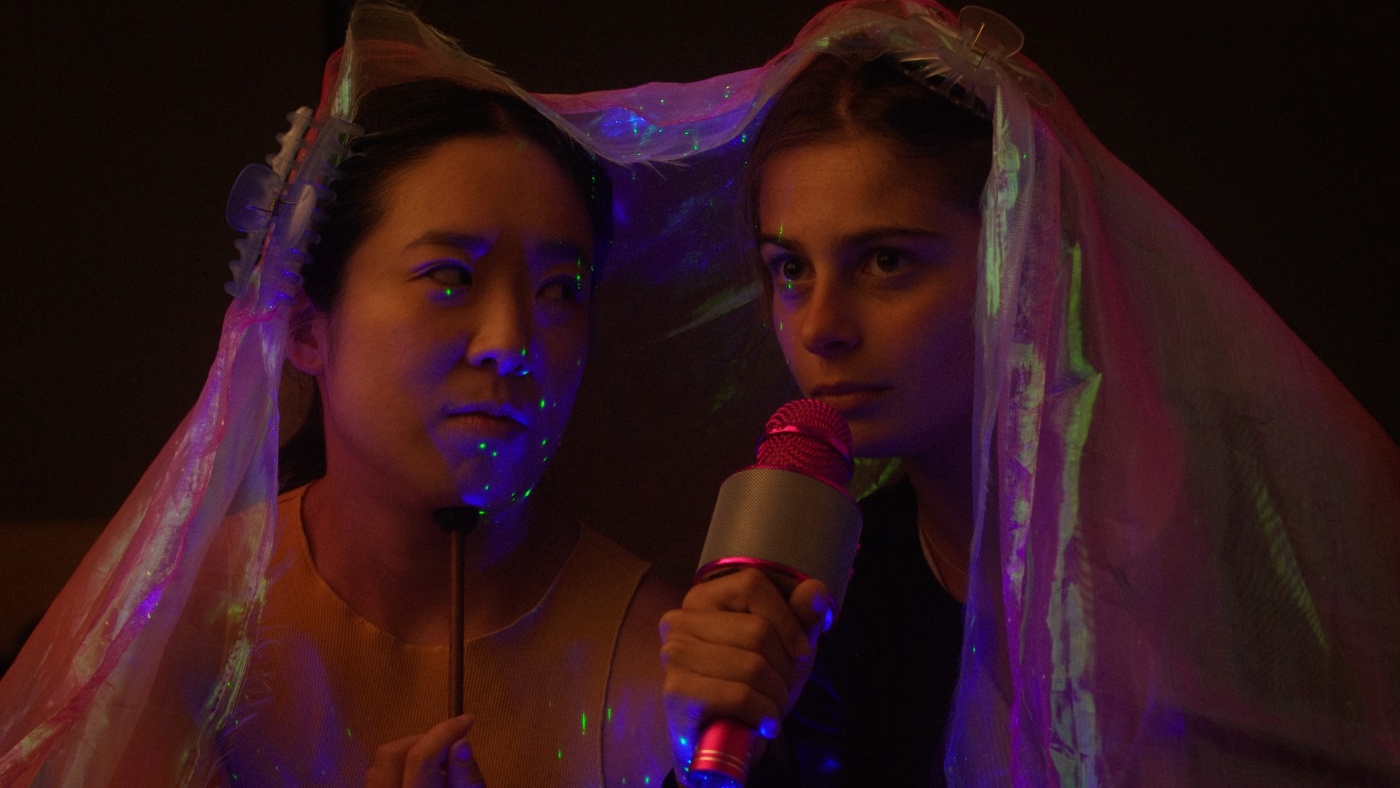by Alireza Hatamvand
Worth: $12.00
FilmInk rates movies out of $20 — the score indicates the amount we believe a ticket to the movie to be worth
Cast:
Emmanuelle Mattana, Melissa Gan
Intro:
...filled with a distinctly feminine spirit ...
Two people meet, start walking, and keep talking and talking and talking. This is what we can informally call a “walking-and-talking” film — a kind of form, or even a subgenre, in cinema that has given us brilliant examples like Before Sunrise by Richard Linklater and Certified Copy by Abbas Kiarostami. And now, in Fwends, directed by Sophie Somerville, we are once again faced with this lovely cinematic form — one we seem to need every few years.
Fwends tells the story of two friends who have taken different paths in life and career and now, after a long time, have the chance to spend time together. The character Em, played by Emmanuelle Mattana, is a lawyer living in Sydney. In contrast, Jessie, played by Melissa Gan, once worked as a stripper and now lives in a small apartment in Melbourne, recently out of a long-term relationship for reasons she’s not eager to disclose. The two are, potentially, so different that one might wonder at first how they even became friends — though this very contrast can create the basis for interesting conversations, something the film both succeeds and fails at.
In walking-and-talking films — nothing matters as much as the dialogue. If the dialogue works, hallelujah; if it doesn’t, the film collapses. So, what does Fwends do with its dialogue? Some lines — like when Jessie, perhaps finally out of drunkenness, decides to reveal the secret behind her breakup — are deeply dramatic and moving. Others, simpler moments — such as the conversation before they enter Jessie’s house — flow quietly and logically, shaping the two characters without the writer’s voice ever intruding. But at too many other moments, the dialogue becomes somewhat sloppy, turning into ordinary small talk. While realistic, their abundance disrupts the film’s rhythm, pushing the audience away. The result is that the viewer feels like a yo-yo — drifting away from the film and then being pulled back in again.
The performances are also worth highlighting. With their contrasting styles, the actors manage to build a believable, friendly rapport. However, there are times when their effort to act naturally feels overdone. For instance, Emmanuelle occasionally stretches her pauses or overplays her otherwise charming expressions, suggesting a degree of directorial influence or maybe her personal decisions. This unfortunately breaks the cinematic spell, bringing attention to artifice.
Still, the film’s strengths remain clear. Despite the straightforward plot, Fwends maintains enough engagement to carry the audience through to the revelation of certain secrets and hidden aspects of the characters. Wandering through Melbourne’s streets and passing by some of the city’s icons is enjoyable — a tradition some directors, like Woody Allen, use to enrich their films. Also, director Sophie Somerville’s touches — like hallucinatory images by the pond when Jessie confides her most important thoughts to Em — suggest that she isn’t afraid of breaking form and may do so even more boldly in her future films.
Fwends isn’t for everyone, but filled with a distinctly feminine spirit, it offers a particularly satisfying viewing experience for young women.




